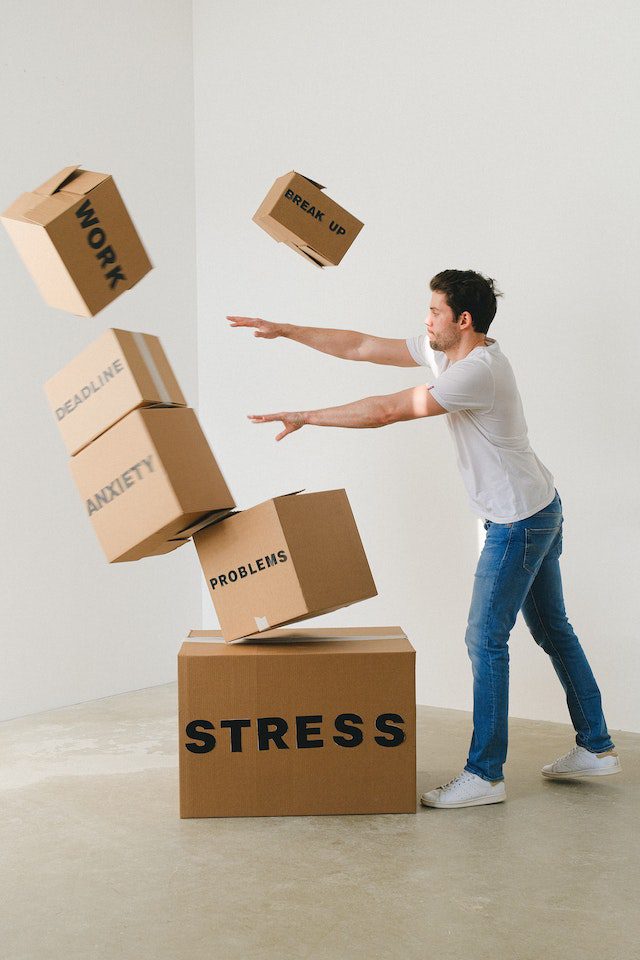Anxiety is a natural stress response that affects everyone in different ways.
The feeling of uncertainty, fear, and nervousness is experienced daily by a majority of the population.
It can resolve itself, but there are times when that anxiousness takes over a person’s life.
In this circumstance, an intervention is necessary.
Table of Contents
What’s A Trigger?
Anxiety can be linked to other mental health or physical illnesses and stressful situations or disguised as a side effect of certain drugs.
The specific action or situation that causes panic and worry can be considered an anxiety trigger.
The first step is always to attempt to identify the trigger, which could take a while.
So, for the time being, take a few minutes to learn about simple and temporary ways to deal with moments of anxiety, along with techniques that focus on helping battle it in the long run. By understanding what does having the sunday scaries mean, you gain greater control over your reactions and can work towards minimizing their impact on your overall well-being. So, take the time to explore and understand your triggers, empowering yourself to navigate the challenges they present with resilience and self-awareness.
Change Your Diet
An unbalanced diet can cause chemical imbalances and make you prone to anxiety. Slowly incorporate foods known to improve brain function into your daily diet.
Unhealthy diets can affect your mental and dental health.
Conditions like bruxism are traced to stress and anxiety. Fortunately, there are simple ways of dealing with this condition. Smile Brilliant offers some of the best custom night guard choices to protect your teeth. They’re affordable and effective.
Declutter
Your surroundings heavily influence your inner state of being. Clutter is a possible cause of anxiety.
Eliminate as much clutter as you can. Avoid storing old books, toys, and clothes. Repurpose or donate them instead. A clear space will allow you to breathe freely.
Even if organizing is not one of your better skills, some expert tips will help you keep a decluttered home.
Journaling
Cleanse your mind by free writing in a journal. Decorate the journal to make yourself comfortable and motivate yourself to use it.
Express your emotions in words and drawings. Do not worry about grammar and punctuation. These are your raw thoughts on paper.
Not only will this help you manage your emotions, but also, on revisiting the scribbles, you may or may not notice a pattern that will further help discover an anxiety trigger.
Socialize
Connect with others. Studies show that socialization is a key practice that reduces and manages stress in humans.
Not everyone can suddenly develop social skills. Start by spending time with your family and friends or even pets.
These connections offer a feeling of belonging and being loved and reduce loneliness.
Meditate And Practice Yoga
Meditation and yoga are practices that will help redirect your emotions and focus. A restless mind has a higher chance of feeling anxious.
A common misconception is that meditation requires a silent environment and a certain seating position. Meditation can be done anywhere and at any time.
Yoga is a method that will relieve muscular tension and soothe your nervous system. Making yoga and meditation a fixed routine benefits your body’s overall health.
Engage Your Senses
Keep your body in control. Practice actions that will make you focus on your senses instead of fear. These can be both quick tricks and time-consuming methods.
For example, ground yourself with the ‘countdown’ technique. Look around yourself and observe. Begin with the largest number. List five things you see around you and four things you can physically touch. Three smells you can or would like to smell, two sounds you hear, and one thing you can potentially taste.
Commit to doing only these steps repeatedly until you’re ready. It slowly shifts your focus away from anxiety.
Conclusion
Always remember that there’s no single answer to control or resolve anxiety.
Treatment and remedies can be a combination of things. The more you experiment, the more you learn what helps you.
Featured Photo by SHVETS production: https://www.pexels.com/




